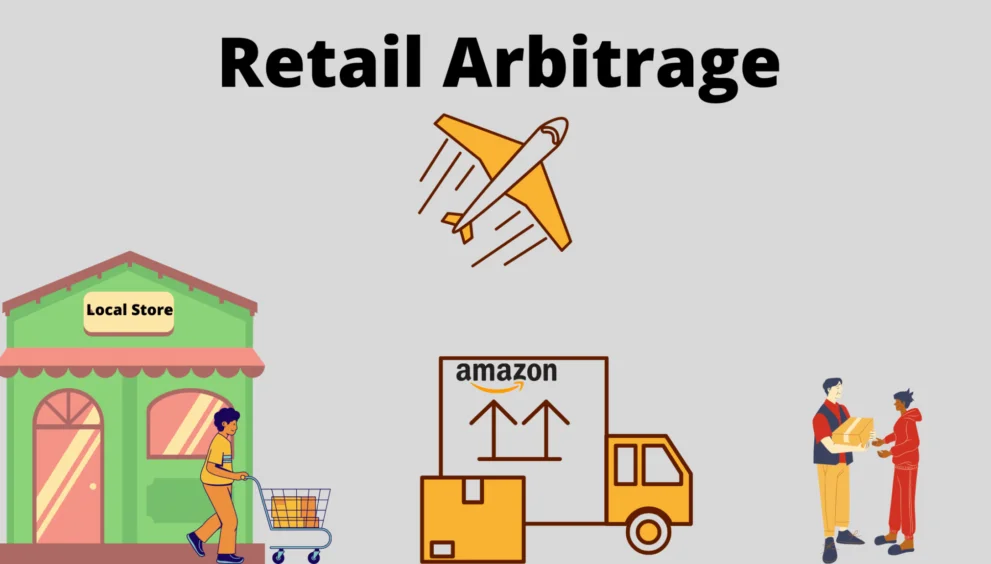In the world of e-commerce, Amazon Retail Arbitrage has emerged as a popular method for individuals to generate income by buying products from retail stores and reselling them on Amazon for a profit. This article will explore the ins and outs of Amazon Retail Arbitrage, including its definition, benefits, challenges, and tips for success.

Introduction to Amazon Retail Arbitrage
Amazon Retail Arbitrage involves purchasing products from brick-and-mortar retail stores at a discounted price and then selling them on Amazon for a higher price. This practice takes advantage of price discrepancies between retail stores and Amazon’s online marketplace to generate a profit.
What is Retail Arbitrage?
Retail Arbitrage is a retail strategy where individuals capitalize on price differences between different markets or platforms. By purchasing products at a lower price from one market and selling them at a higher price in another, retailers can profit from the price differential.
How Does Amazon Retail Arbitrage Work?
Amazon Retail Arbitrage works by sourcing products from retail stores, clearance sales, or online marketplaces at a lower price than their selling price on Amazon. Sellers then list these products on Amazon, taking advantage of the platform’s large customer base and high traffic to sell the items at a profit.
Benefits of Amazon Retail Arbitrage
- Low barrier to entry: Anyone can start with minimal investment.
- Flexibility: Work from anywhere at any time.
- Profit potential: Earn substantial profits by identifying and selling high-demand products.
- Skill development: Improve sourcing, pricing, and marketing skills.
Challenges of Amazon Retail Arbitrage
- Competition: Facing competition from other sellers.
- Price fluctuations: Dealing with price changes and market trends.
- Inventory management: Balancing inventory levels and storage space.
- Shipping and logistics: Handling shipping and fulfillment processes efficiently.
Tips for Success in Amazon Retail Arbitrage
- Research extensively before making purchasing decisions.
- Monitor price trends and competition regularly.
- Focus on high-demand, low-competition products.
- Build relationships with retail stores for better sourcing opportunities.
- Optimize product listings with compelling titles, descriptions, and images.
Finding Profitable Products for Retail Arbitrage
Identifying profitable products for retail arbitrage involves researching market trends, analyzing sales data, and understanding customer preferences. Tools like Amazon’s Best Sellers list, sales rank trackers, and product research software can help sellers identify lucrative opportunities.
Pricing Strategies for Amazon Retail Arbitrage
Pricing strategies for Amazon Retail Arbitrage include competitive pricing, dynamic pricing, and bundling. Sellers should consider factors such as product demand, competition, and profit margins when setting prices to maximize sales and profitability.
Amazon Retail Arbitrage Tools and Resources
Several tools and resources are available to assist sellers in their Amazon Retail Arbitrage endeavors, including inventory management software, price tracking tools, and sourcing apps. These tools can streamline operations, automate processes, and provide valuable insights for sellers.
Legal and Ethical Considerations
Sellers engaging in Amazon Retail Arbitrage should be aware of legal and ethical considerations, including restrictions on selling certain brands or products, compliance with Amazon’s policies, and adherence to copyright and trademark laws.
Scaling Your Amazon Retail Arbitrage Business
To scale your Amazon Retail Arbitrage business, focus on expanding product selection, streamlining operations, and reinvesting profits into inventory and infrastructure. Building a brand, diversifying product offerings, and exploring new markets can also contribute to business growth and sustainability.
Conclusion
In conclusion, Amazon Retail Arbitrage offers a viable opportunity for individuals to earn income by leveraging price discrepancies between retail stores and Amazon’s online marketplace. By following best practices, staying informed about market trends, and utilizing available tools and resources, sellers can build successful and profitable businesses through Amazon Retail Arbitrage.
FAQs
- Is Amazon Retail Arbitrage legal?
- How much money can I make with Amazon Retail Arbitrage?
- Do I need a business license to engage in Retail Arbitrage?
- What are some common mistakes to avoid in Amazon Retail Arbitrage?
- Can I use Fulfillment by Amazon (FBA) for Retail Arbitrage products?





